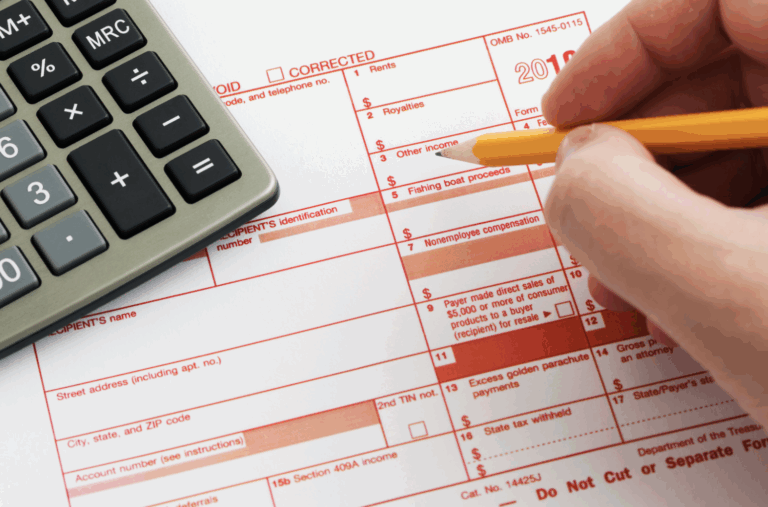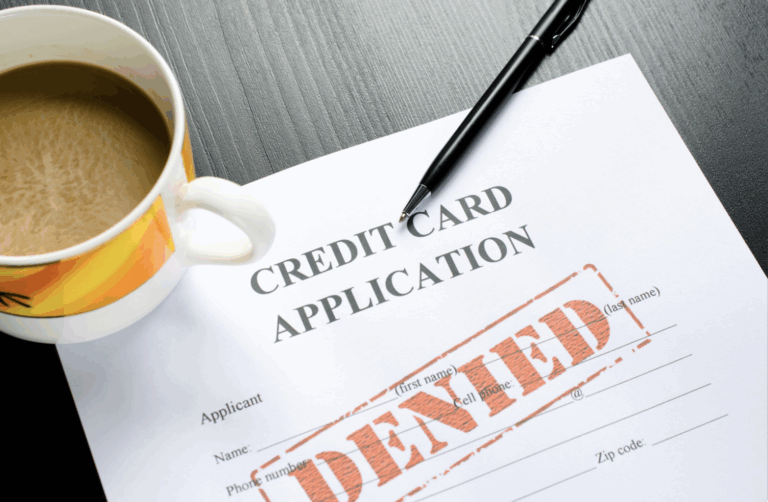Struggling with overwhelming debt can feel like an endless battle, and for many, the promise of relief through debt settlement companies is tempting. But is partnering with one the right choice for your financial situation?
Understanding how these companies work and whether they align with your needs is crucial before making a decision. Here’s what you need to know to determine if working with a debt settlement company is the best option.
Evaluating Debt Settlement Companies
Evaluating potential debt settlement companies is critical to ensuring that you work with a reputable firm that can effectively manage your debt while protecting your interests.
Qualities of a Reputable Debt Settlement Company
There are many debt settlement companies out there, and not all of them are reputable. If you’re looking for a legitimate debt settlement company, here are some general qualities you should be looking for:
- Transparency: A trustworthy debt settlement company will provide clear information about its services, fees, and the risks involved in settling debts. They should explain their process upfront, including how long it may take to settle your debts and the potential impact on your credit.
- Realistic promises: Reputable companies will not guarantee that they can eliminate a specific amount of debt or give you exact settlement amounts and time frames. Instead, they will provide realistic estimates based on your debt situation and emphasize that success depends on negotiations with creditors.
- Clear fee structure: Look for companies that only charge fees after they have successfully settled a debt on your behalf. This “no upfront fee” model is required by law for debt settlement companies that operate in most states under the Federal Trade Commission (FTC) guidelines.
- Accessible customer support: A good company will provide regular updates on your settlement progress and have accessible customer support to answer your questions and address concerns promptly.
Red Flags and Warning Signs
As mentioned, there are many questionable, if not downright fraudulent, debt settlement companies you could come across. When evaluating companies, keep an eye out for these red flags:
- Upfront Fees: Be wary of any company that asks for fees before settling any of your debts. This practice is illegal in many states, and companies that do this might be more interested in collecting fees than actually helping you resolve your debt.
- Guarantees of debt elimination: No legitimate debt settlement company can guarantee that it will eliminate a specific percentage of your debt. If a company makes such claims, it’s a red flag that they might not be operating ethically.
- High-pressure sales tactics: Companies that pressure you to sign up quickly or discourage you from exploring other options, such as credit counseling or bankruptcy, should be avoided. A reputable company will allow you time to consider your options and make an informed decision.
- Negative consumer complaints: Multiple unresolved consumer complaints or consistent negative feedback, especially regarding the same issues (e.g., hidden fees, lack of communication), should be a major warning sign.
The Role of Third-Party Reviews and Ratings
Relying on reviews and ratings can help you narrow down your choices and identify a reputable debt settlement company. Consider these sources:
- Better Business Bureau (BBB): Check the company’s rating on the BBB website. A rating of A or higher, combined with a history of resolved complaints, can indicate a more trustworthy company.
- Consumer Financial Protection Bureau (CFPB) database: The CFPB maintains a database where consumers can see complaints filed against debt settlement companies. Reviewing these complaints can provide insights into recurring issues and how the company handles customer disputes.
- Trustpilot and Google reviews: Third-party review sites like Trustpilot can offer a broader view of customer satisfaction. Look for companies with high ratings and positive feedback regarding their service, customer support, and transparency.
- Consumer advocate sites: Websites like Consumer Reports and other debt relief rating sites can provide professional reviews and rank debt settlement companies based on their effectiveness, customer service, and pricing.
Accreditation and Memberships to Look For
In addition to reviews, you should also verify that a potential debt settlement company has the following credentials:
- American Fair Credit Council (AFCC): Membership in the AFCC indicates that the company adheres to a set of industry standards designed to protect consumers. The AFCC promotes transparency and accountability among debt settlement companies.
- International Association of Professional Debt Arbitrators (IAPDA): Look for companies whose staff members are certified by the IAPDA. This certification ensures that the company’s negotiators are trained in debt settlement practices.
- Federal Trade Commission (FTC) compliance: Ensure that the company follows FTC guidelines, which prohibit upfront fees and require full disclosure of terms and conditions before enrollment in a debt settlement program.
- State licensing: Some states require debt settlement companies to be licensed to operate legally. New York, Connecticut, Illinois, Maryland and others for example. Check with your state’s attorney general’s office or department of finance to verify if the company is licensed where you live.
Pros and Cons of Using a Debt Settlement Company
For some people, hiring a debt settlement company is worth it. In other cases, it may not be. It’s important to understand the potential benefits versus risks that come with working with a debt settlement company.
Advantages of Debt Settlement Companies
- Potential for debt reduction: Debt settlement can help you pay less than the full amount owed on your debts, potentially saving you quite a bit of money. This can be particularly beneficial if you have a large amount of unsecured debt (like credit card debt) that you are struggling to repay in full.
- Simplifies the repayment process: A debt settlement company can consolidate your payments into a single monthly amount that goes into a savings account, which they use to negotiate with your creditors over time. This can simplify your financial management compared to managing multiple creditors on your own.
- Relief from Overwhelming Debt: If you’re feeling overwhelmed by debt and are unable to manage your monthly payments, debt settlement can provide an alternative to more drastic options like bankruptcy. It offers a structured approach to debt reduction and may allow you to avoid the long-term impact of a bankruptcy on your credit report.
- Professional Negotiation: Working with a debt settlement company means you have professionals handling negotiations with your creditors. They may have experience in getting creditors to accept lower settlement amounts, which can be challenging to achieve on your own, especially if you don’t have any experience with this type of negotiation.
Potential Drawbacks and Risks
- Negative impact on credit score: During the settlement process, you are usually required to stop making payments to your creditors, which can cause your accounts to go delinquent. This will severely damage your credit score, and the negative entries will stay on your credit report for seven years. Once your debt is settled, the account status will be noted as “settled” on your credit report rather than “paid in full,” which can be red flags for future lenders. However, done right and the settlements can be positive.
- No guarantee of success: There is no guarantee that creditors will agree to settle for a reduced amount. Some creditors may refuse to negotiate, which means you could end up further behind with unpaid balances and accumulated fees.
- Fees and costs: Debt settlement companies charge fees for their services, often a percentage of the settled debt or a percentage of the debt you enroll. These fees can be significant and may reduce the overall savings you gain from settling your debts.
- Possible tax implications: The IRS may consider forgiven debt as taxable income, meaning that any amount of debt that is settled for less than the full balance could lead to a tax liability. For example, if you settle a $10,000 debt for $6,000, you might owe taxes on the $4,000 difference for that tax year.
- Potential for Scams: The debt settlement industry has a history of fraudulent companies that take upfront fees, make unrealistic promises all without providing substantial help. It’s important to research and choose a company that is transparent and has a strong reputation.
Alternatives to Using a Debt Settlement Company
If you’re considering using a debt settlement company, know that there are several options that may help you manage and reduce your debt without the risks associated with debt settlement. Here are some of the most common alternatives:
1. Debt Management Plan (DMP)
A debt management plan is usually offered through non-profit credit counseling agencies. The agency works with you to create a manageable budget and negotiates with your creditors for reduced interest rates or waived fees.
DMPs can help you consolidate your payments into a single monthly payment and often lead to lower interest rates.
Keep in mind that you still need to pay the full amount of your debts, and it may take three to five years to complete the plan. Further, some creditors may not participate in a DMP. And even if you’re working with a non-profit organization, there are still fees involved in the service and it can still impact your credit.
2. Debt Consolidation Loan
A debt consolidation loan allows you to combine multiple debts into a single loan with a fixed interest rate. You use the new loan to pay off existing debts, leaving you with one monthly payment.
However, to qualify for the best rates, you typically need a good credit score. It also does not reduce the total amount of debt, but it can make payments more predictable. Debt consolidation loans are best for those with a decent credit score who want to simplify their debt repayment without hurting their credit.
3. Negotiating Directly with Creditors
You can reach out to your creditors directly to negotiate a repayment plan or settlement. Some creditors may be willing to accept a reduced lump-sum payment or to modify your repayment terms.
However, negotiating on your own requires strong communication skills and the ability to be assertive and persistent and really understand the process.
4. Balance Transfer Credit Card
A balance transfer card allows you to move high-interest credit card debt to a new card that offers a 0% introductory APR for a certain period (typically, 12 to 18 months). This can be an effective way to reduce interest costs and pay down debt faster during the promotional period.
It’s important to note that you need a good credit score to qualify for these types of offers, and if you don’t pay off the transferred balance before the promotional period ends, you may face high interest rates. If you have fairly manageable credit card debt amounts and a good credit score, this could be a good option.
5. Bankruptcy: A Last Resort
Bankruptcy is a legal process that can discharge most unsecured debts or create a plan to repay creditors over time. Chapter 7 (liquidation) and Chapter 13 (reorganization) are the most common types for individuals.
Bankruptcy can provide a fresh start by wiping out most debts, and it offers legal protection from creditors’ collection actions. However, it does have a severe and long-lasting impact on your credit score, remaining on your credit report for 7-10 years. It may also require the sale of some assets.
Those facing severe financial hardship who cannot realistically pay off their debts within a few years should consider bankruptcy.
Making an Informed Decision
There are many ways to go about tackling your debt, and choosing the right course of action is crucial. If you’re thinking about hiring a debt settlement company, here’s how to go about making an educated decision.
Assessing Your Financial Situation
Assessing your financial situation before engaging with a debt settlement company is necessary for understanding whether this option is appropriate for you and how best to proceed.
Start by creating a list that includes all of your debts, including credit card balances, personal loans, medical bills, and any other unsecured debts. Include the total amount owed, minimum monthly payments, interest rates, and the status of each account (current, late, charged off, etc.).
Keep in mind that debt settlement companies typically work with unsecured debt, like credit card debt, but they can’t negotiate on secured debts (like car loans or mortgages)..
Additionally, identify if any of your creditors have initiated legal proceedings, such as lawsuits or judgments. These situations require more urgent attention and may impact your strategy.
Next, review your income and expenses. Include all sources of income, such as paychecks, freelance earnings, rental income, and any government benefits. This will give you a clear picture of what you have to work with. Then subtract your monthly expenses from your monthly income to see how much money you have left. This disposable income can help determine your ability to contribute to a debt settlement savings account or negotiate payment plans..
Finally, nail down your financial goals and timeline. Determine whether your primary goal is to become debt-free as quickly as possible, minimize monthly payments, or avoid legal actions from creditors. Your goals will influence whether debt settlement, a debt management plan, or another solution is the best fit.
Also note that debt settlement typically takes 24-48 months to complete. Think about whether you can commit to this timeline, keeping in mind that the process may require you to accumulate savings before settlements are negotiated.
Questions to Ask a Debt Settlement Company
When considering working with a debt settlement company, asking the right questions can help you evaluate their credibility and ensure that the services they offer align with your financial needs. Here are important questions to ask:
- What are your fees, and how are they structured? Understand whether they charge a flat fee, a percentage of the debt enrolled, or a percentage of the debt saved. A reputable company will only charge fees after they successfully settle a debt.
- How long will it take to settle my debts? Debt settlement typically takes between 24 to 48 months. Understanding the timeline helps you assess if you can commit to the duration and build up the necessary settlement funds.
- What percentage of clients successfully complete your program? This will give you an idea of how effective the company is at settling debts. Be cautious of companies that make exaggerated claims about their success rates.
- What percentage of debt reduction can I realistically expect? Be wary of any guarantees or promises of specific reductions, as successful settlements depend on negotiations with creditors.
- What happens if a creditor refuses to negotiate? It’s important to know how the company will handle a situation where creditors do not agree to settle or if they pursue legal action instead.
- How often will I receive updates on the progress of my settlements? Regular updates are important to keep you informed about the progress of your accounts. A good company should offer transparent communication.
- Will I have a dedicated representative or point of contact? Knowing that you have a specific person to reach out to can improve your experience and provide consistent support throughout the settlement process.
- How long have you been in business, and how many clients have you helped? A company with a longer track record and a significant number of successfully settled cases may have more experience in negotiating with creditors.
- Can I review a sample contract before signing up? Reviewing a sample contract can help you understand the terms and conditions before committing. It’s a sign of transparency if a company is willing to provide this.
- What is your refund policy if I decide to cancel the program? Some companies may offer a refund of certain fees if you cancel. It’s important to understand your rights if you decide to leave the program early.
- Can you provide references from past clients? While some companies may be restricted from sharing client information, a reputable one likely will have testimonials or client stories that they can share.
Debt Settlement Company vs. Debt Settlement Attorney
If you’ve decided to pursue debt settlement, know that debt settlement companies aren’t your only source of help. You also have the option of hiring a debt help attorney that has experience with debt settlement.
A debt settlement attorney is a licensed legal professional with a background in consumer law and debt negotiation. Attorneys can provide legal advice, represent you in court if a creditor sues, and assist with more complex legal issues, such as defending against judgments, liens or helping you file for bankruptcy.
Because they have legal training, they can offer more tailored advice and protections under consumer protection laws. Plus, unlike debt settlement companies, they are ethically obligated to act in your best interest.
At Tayne Law Group, we offer a free phone consultation with one of our experienced debt relief attorneys to see how we may be able to help you with your credit card debt, merchant cash advances, loans or other debt matters. So whether you’re struggling to keep up with your bills, falling behind on payments, or are even facing a lawsuit by creditors, there’s a good chance we can help you. When you’re ready for a free phone consultation, contact our debt resolution law firm by calling (866) 890-7337 or filling out our short contact form. We never share or sell your information, and all conversations are confidential.





